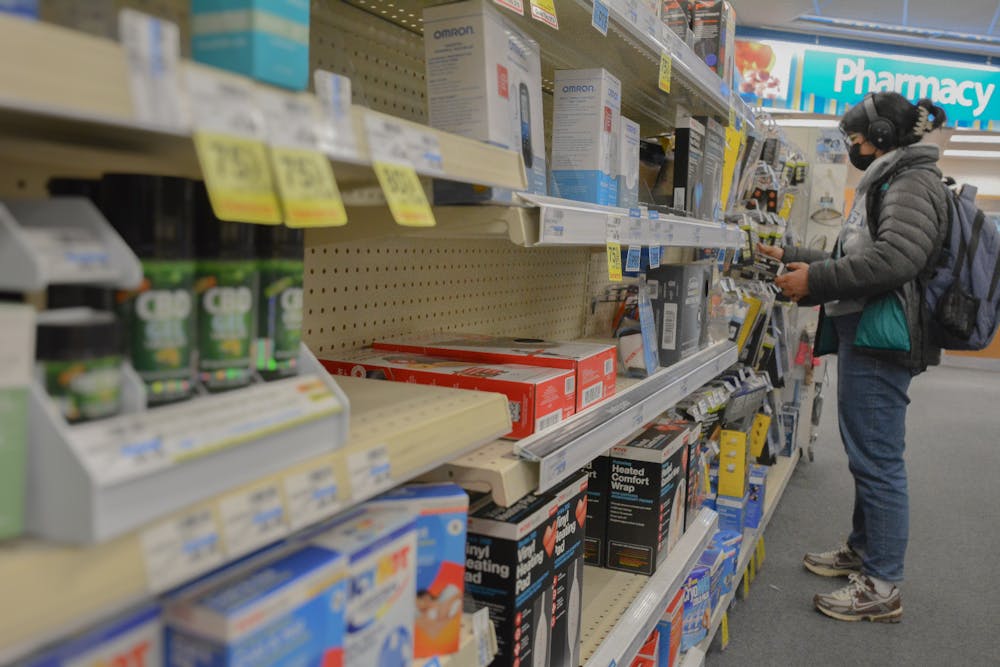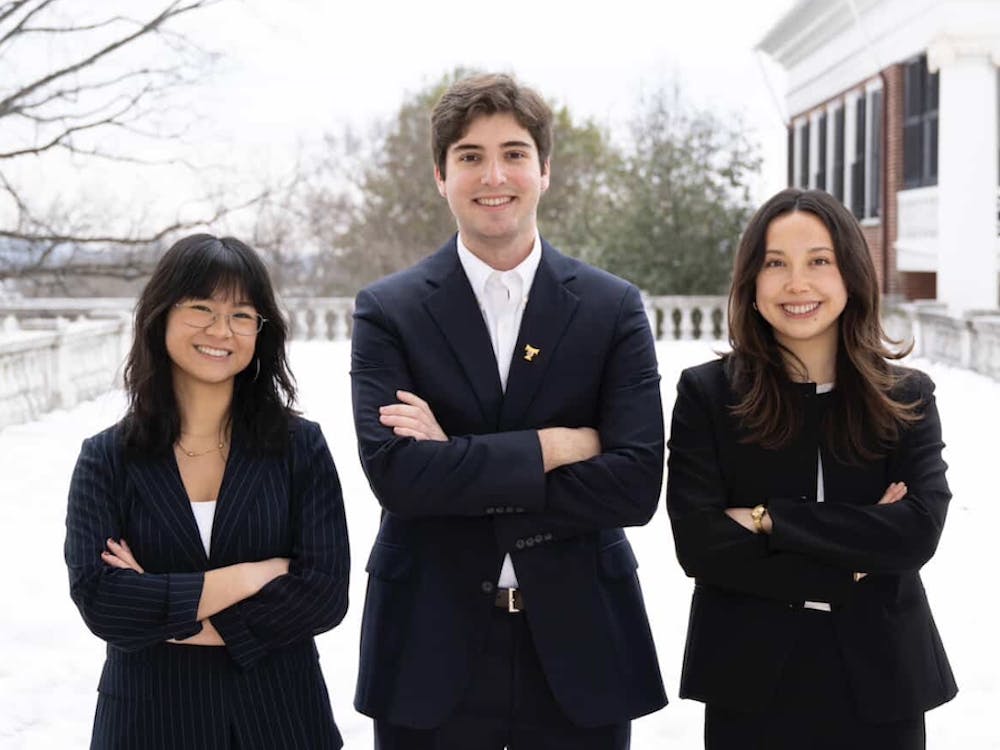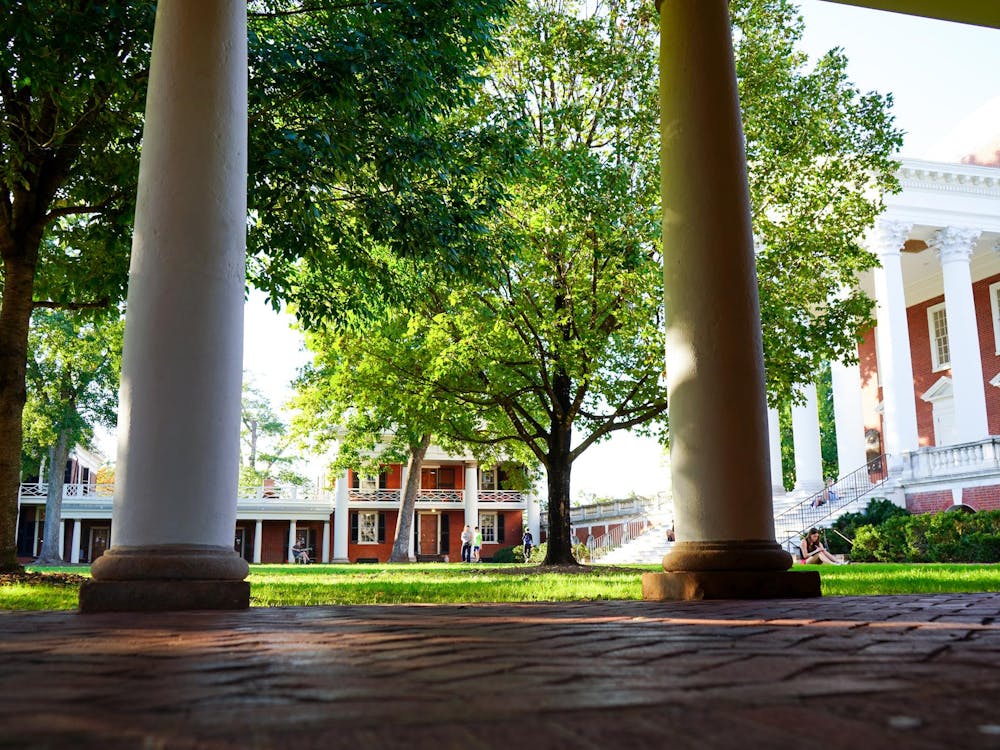From COVID-19 to the flu, an upward spike in several respiratory illnesses has lowered attendance rates, altered students’ schedules and impacted their academic and social lives. Elson Student Health and Wellness has reported a rising number of cases since students returned to Grounds after winter break.
According to the Centers for Disease Control and Prevention, February is often the peak month of flu season in the United States. In a written statement to The Cavalier Daily, Danielle D’Andrea Black, the associate director of marketing and communications for the Department of Student Health and Wellness, said the University shows a similar transmission pattern, with many students getting sick in January and February.
“The U.Va. student body usually experiences an uptick in respiratory illnesses about two to three weeks after returning to Grounds after winter break,” Black said. “This mirrors community rates of flu and other respiratory illnesses outside the University … COVID cases seem to occur more after students have traveled for breaks, which also mirrors trends in the general population.”
Preventative measures such as vaccinations and healthy hygiene practices have been organized and promoted by Student Health and its affiliated groups, including the HealthyHoos team and the Peer Health Educators. To prevent respiratory illness, Student Health hosted a flu vaccination drive in Newcomb Hall for all students in November. This event had a “great turnout,” according to Black.
Nonetheless, sickness rates are high. A weekly influenza activity report from the Virginia Department of Health found that the state is experiencing a high level of “influenza-like illnesses.” Along with flu-like symptoms, some students are struggling with other respiratory issues. First-year College student Jack Wallace received a bacterial pneumonia diagnosis just over a week ago.
“I got my diagnosis from Student Health and Wellness, I used a same-day appointment,” Wallace said. “I started feeling pretty bad around 1 p.m. and I was able to come in at 3 p.m., so it was a quick turnaround.”
Student Health offers same-day and next-day appointments, that can be scheduled via phone, for immediate needs. Otherwise, students should use the HealthyHoos patient portal to arrange a medical appointment.
Even the students who are not getting sick are still having their lives affected by the uptick in cases. Professors have also contracted some of the same illnesses as their students, affecting their courses and their students’ academics.
First-year College student Anna Russell said she has not met with her engagement class in person at all this semester, at first due to the professor’s travel situation returning from break then due to the same professor contracting COVID-19. In a written statement to The Cavalier Daily, Russell said that since the half-semester-long class only meets for seven weeks, her experience in the course has been negatively impacted.
“We already have a limited amount of meetings together, so when it’s the fourth week of classes and we still haven’t met our professor in person it definitely feels more distanced,” Russell said. “Also in a smaller, discussion-based class like an engagement, Zoom doesn’t give the same opportunity to speak up and share ideas.”
While some professors have switched to Zoom classes or asynchronous work in an effort to avoid spreading contagious illnesses, some students still attend class while sick.
According to Black, sicknesses in classrooms pose a threat to all students’ well-being, especially those who may be immunocompromised. She said there are several measures students can take to protect themselves.
“If you are sick with a fever or new respiratory symptoms, stay home, don’t go to class,” Black said. “This will help prevent the spread of respiratory illnesses — you never know if that person next to you in chem class takes immune-suppressing medication or has asthma.”
Black also said that students who stay home from classes due to sickness should take their absence as an opportunity to rest and stay hydrated. She said small self-care measures factor into prevention as well.
“Getting good sleep, eating regular meals and managing stress all help your immune system to function at its best,” Black said. “Sometimes, the little things can go a long way.”
As students navigate this flu season, Student Health provides many opportunities for healthcare including same-day appointments, rapid flu tests, COVID-19 PCR tests and strep tests. Wallace said students would likely take advantage of these resources more often if they were more aware of what illnesses are being transmitted within the community.
“I think there could be a little more upfront communication about what’s circling frequently,” Wallace said. “When I went to Student Health I [knew] a lot of people had the flu so I might have the flu, but it was negative … I think if people were more aware of things that are circulating at the time [they would] be more conscientious of going out or just staying more healthy in general.”







